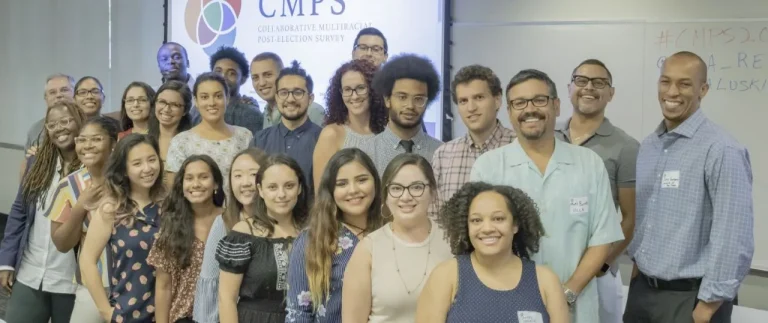Is Computer Science Math Heavy?
Computer science is one of the most popular college majors today, with job prospects in high demand. However, many prospective students wonder – is computer science math heavy? In this comprehensive guide, we’ll analyze the math requirements for a computer science degree and career.
If you’re short on time, here’s a quick answer: Computer science does require strong math skills, especially in algorithms, calculus, statistics, and discrete math. However, the math focuses more on logic and problem-solving rather than advanced theoretical concepts.
Math Prerequisites for a Computer Science Degree
When considering a degree in computer science, many prospective students wonder about the math requirements. Is computer science math heavy? The answer to that question lies in the math prerequisites for a computer science degree.
Calculus
Calculus is a foundational math course that is typically required for a computer science degree. It provides students with a solid understanding of mathematical concepts such as limits, derivatives, and integrals.
Calculus is important in computer science because it is used in algorithms, optimization, and data analysis. Understanding calculus allows computer scientists to develop complex algorithms that can solve real-world problems efficiently.
Discrete Math
Discrete math is another important math course for computer science students. It focuses on mathematical structures that are fundamentally discrete rather than continuous. Discrete math is the foundation for many computer science concepts, such as logic, sets, relations, and graphs.
It is essential for understanding algorithms, cryptography, and computer networks.
Linear Algebra
Linear algebra is a branch of mathematics that deals with vector spaces and linear equations. It is used in computer science for tasks such as image processing, machine learning, and computer graphics.
Linear algebra provides the tools for representing and manipulating data in a multidimensional space. It is crucial for understanding algorithms that involve matrix operations and transformations.
Probability and Statistics
Probability and statistics play a significant role in computer science. They provide the foundation for understanding data analysis, machine learning, and artificial intelligence. Probability theory is used to model uncertain events and make predictions based on data.
Statistics allows computer scientists to analyze and interpret data, infer patterns, and make informed decisions. These concepts are essential for developing algorithms that can process and interpret large datasets.
It is important to note that while math is a significant component of a computer science degree, it is not the only aspect. Computer science also involves programming, problem-solving, and logical thinking. However, a solid understanding of math is crucial for success in the field.
For more information on the math prerequisites for a computer science degree, you can visit Princeton University’s Computer Science Department or Carnegie Mellon University’s Computer Science Department.
Key Math Concepts in Core Computer Science Courses
Computer Science is a field that encompasses a wide range of topics, including mathematics. While it may not be accurate to say that computer science is math-heavy, there are certainly key mathematical concepts that play a crucial role in core computer science courses.
Understanding these concepts is essential for developing a strong foundation in computer science.
Algorithms and Data Structures
One of the fundamental aspects of computer science is the study of algorithms and data structures. These concepts involve designing and analyzing efficient algorithms to solve problems, as well as organizing and manipulating data in an efficient manner.
To fully grasp these concepts, a solid understanding of mathematical principles is necessary. This includes topics such as discrete mathematics, combinatorics, probability theory, and graph theory.
Computer Architecture
Computer architecture focuses on the design and organization of computer systems. This includes understanding how computer hardware and software interact to execute programs and perform tasks. While computer architecture does require some mathematical knowledge, the level of mathematical rigor may vary depending on the specific course or program.
Topics such as Boolean algebra, logic gates, and digital circuits are often covered in computer architecture courses.
Operating Systems
Operating systems are the software that manages computer hardware and software resources and provides services to computer programs. Understanding the inner workings of operating systems involves studying concepts such as process management, memory management, and file systems.
While these concepts may not heavily rely on advanced mathematical concepts, a basic understanding of mathematical principles, such as counting and probability, can be beneficial in analyzing and optimizing system performance.
Software Engineering
Software engineering focuses on the development and maintenance of software systems. While this field may not require extensive mathematical knowledge, there are certain mathematical concepts that can aid in the design and analysis of software systems.
For example, understanding concepts like complexity analysis and formal methods can help in developing efficient and reliable software. Additionally, knowledge of mathematical logic and set theory can be valuable in designing and verifying algorithms and data structures.
Math Skills Needed for Various Computer Science Career Paths
Software Engineering
While software engineering primarily focuses on developing and maintaining software systems, a solid understanding of math is still important in this field. Software engineers often use mathematical concepts such as algorithms, logic, and problem-solving skills to create efficient and optimized code.
Math is particularly important for software engineers working in areas such as machine learning, artificial intelligence, and computer graphics.
Web Development
Web development, which involves building websites and web applications, generally requires less math compared to other computer science career paths. However, a basic understanding of math is still beneficial.
Concepts such as percentages, basic arithmetic operations, and logic are often used in front-end web development. Additionally, knowledge of math can be helpful when working with data and analytics in web development.
Data Science
Data science is a field that heavily relies on mathematical and statistical concepts. Professionals in this field use math to analyze and interpret large sets of data, build predictive models, and make data-driven decisions.
Skills in linear algebra, calculus, probability, and statistics are essential for data scientists. These skills enable them to understand and manipulate complex data structures.
Cybersecurity
Cybersecurity, which focuses on protecting computer systems from unauthorized access and attacks, does not typically require advanced math skills. However, having a solid foundation in math can be advantageous for cybersecurity professionals.
Understanding mathematical concepts such as cryptography and encryption algorithms can help in developing secure systems and detecting vulnerabilities.
Game Development
Game development, like software engineering, involves the creation of interactive software systems. While math skills may not be required for all aspects of game development, they are important in certain areas such as graphics programming and physics simulations.
Concepts like linear algebra, trigonometry, and calculus are used to create realistic graphics and physics in video games.
Tips for Succeeding in the Math Courses
Take High School Math Seriously
One of the most important tips for succeeding in math courses is to take high school math seriously. Building a strong foundation in math during high school will help you excel in more advanced math courses in college or university.
Pay attention in class, ask questions when you’re unsure, and complete your homework assignments diligently. Remember, math skills are cumulative, so it’s essential to grasp the fundamental concepts before moving on to more complex topics.
Use Online Resources and Tutoring
If you find yourself struggling with math, don’t hesitate to seek help. There are numerous online resources available that can provide additional explanations and practice problems to reinforce your understanding.
Websites such as Khan Academy, Mathway, and Math is Fun offer interactive lessons, tutorials, and even step-by-step solutions to math problems. Additionally, consider seeking tutoring assistance from your school’s math department or hiring a private tutor.
Having someone guide you through challenging concepts can make a significant difference in your understanding and performance.
Focus on Logic and Problem Solving
While math courses may seem intimidating, it’s important to remember that they are not just about numbers and equations. Math is a tool that helps develop logical thinking and problem-solving skills, which are valuable in various fields, including computer science.
Instead of viewing math as a daunting subject, try to approach it with curiosity and a problem-solving mindset. Look for patterns, try different approaches when solving problems, and practice critical thinking.
Developing these skills will not only help you succeed in math courses but also in other areas of your academic and professional life.
Conclusion
While computer science does involve significant math coursework and math-based concepts, the skills focus more on logical thinking and systematic problem solving rather than advanced theoretical math.
With proper preparation and a tenacious attitude, students of all math skill levels can thrive in a computer science program.







